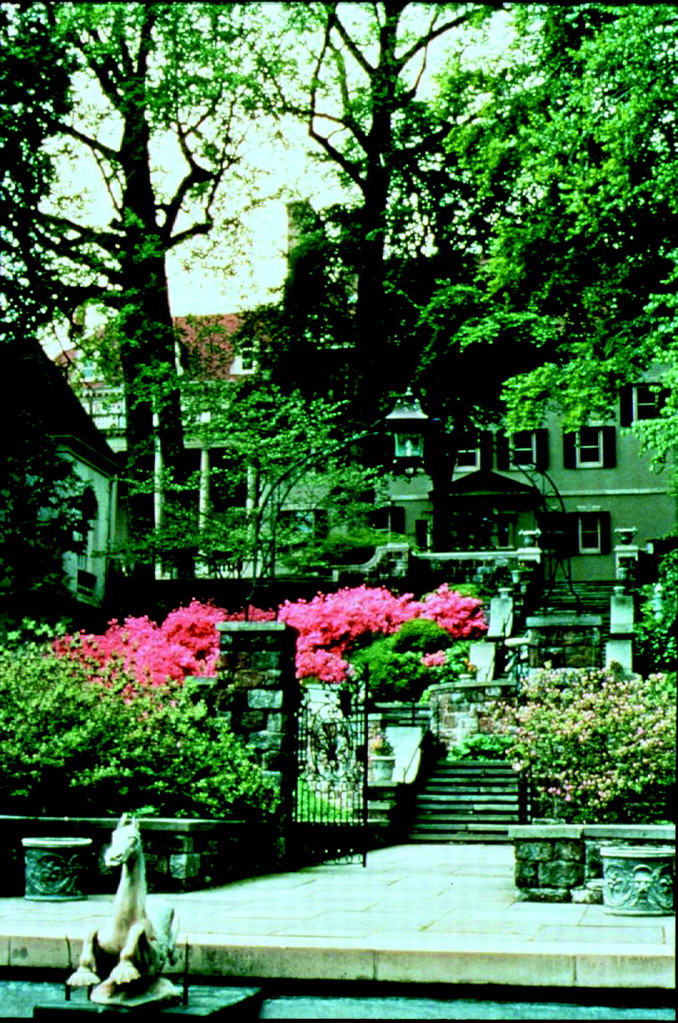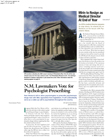Bridging the Pennsylvania and Delaware state line, the Brandywine Valley is an enchanting excursion into rolling countryside filled with Americana from the colonial days through America’s Gilded Age. A 45-minute drive 30 miles southwest of Philadelphia, a side trip to the valley offers a fascinating look into what could be referred to as the “great state of du Pont.”
The Brandywine Valley is particularly rich in American history. If not for the defeat at Brandywine, General George Washington would not have ended up at Valley Forge, from which he would emerge with a competent army.
Yet the most striking influence in the valley since the early 19th century has been the du Pont de Nemours family.
In 1800 Eleuthere Irenee (E.I.) du Pont (1771-1834) fled postrevolutionary Nemours, France, settling along the Brandywine River and setting up powder mills. Every pioneer needed gunpowder, and before long E.I. DuPont de Nemours Co. was well on its way to becoming the vast chemical giant it is today.
Perhaps the most resilient remnants of the family’s tremendous fortune are the homes they built, lived in, and eventually left behind. Indeed, the du Pont family controlled a virtual fiefdom in upper Delaware, building splendid estates with vast gardens that would indeed be revered as some of America’s finest castles.
Winterthur
Winterthur, the former country estate of E.I.’s great-grandson, Henry Francis du Pont (1880-1969), is located 30 miles southwest of Philadelphia, on Route 52 just inside the Delaware state line, and is easily accessible from I-95 or U.S. 1.
Intrigued by how American cultural, architectural, and interior design tastes were tied to those of European derivation, Henry Francis set out to amass a collection of American antiques and interior architectural elements that would lead to dramatic expansions of the home where he was born.
He would eventually collect and arrange, in more than 175 rooms throughout the wings of the house, a representation of American interior design and furnishings that roughly span the years from 1640 to 1840. Over the years, du Pont added whole sections to the house to incorporate the interior woodwork of entire homes, as well as their furnishings.
Opened as a museum in 1951, Winterthur showcases such rare items as the Montmorenci Stair Hall, two Shaker rooms, fine examples of Pennsylvania Dutch decorative arts, and the du Pont family dining room. The Campbell Soup tureen collection, with more than 125 items currently on display, is housed in the Dorrence Gallery, adjacent to the museum.
Perhaps even more dear to the heart of Henry Francis were the gardens that he would personally develop and supervise.
The gardens explode each spring with the blossoms of cherry and crabapple, rhododendrons, Virginia bluebells, and, most prominent at the time of the annual meeting, azaleas. Winterthur’s Azalea Woods began as 17 individual plants, used to fill in where chestnut trees had been felled because of disease. Today, azaleas cover some eight acres with red, white, and pink blossoms peaking toward the end of May and into June.
The basic admission ticket to the estate ($8 for adults) is available year round and covers entrance to the galleries of the main museum, the Dorrance Gallery, a self-guided garden walk, and, when weather permits, a garden tram tour. For an additional fee, guided tours are available through the 175 rooms, as well as a guided garden walking tour.
Longwood Gardens
The life’s love of Pierre S. du Pont (1870-1954), another E.I. great-grandson and cousin to Henry Francis du Pont, Longwood Gardens is a horticultural showstopper where the gardening arts are molded into classic forms and enhanced by machine-age technology.
Longwood is five and a half miles north of Winterthur, just off of U.S. 1 in Kennett Square, Pa. (which, incidentally, calls itself the mushroom capital of the world).
Purchased by Pierre in 1906, the property is made up of 1,050 acres of outdoor gardens, woodlands, and meadows and 20 indoor gardens within four acres of heated greenhouses.
Unlike his cousin’s nearby Winterthur estate, Longwood features a relatively unpretentious main residence, but Pierre went out of his way to develop the grounds with unbridled theatricality.
Through the end of May, many favorites, including tulips and wisteria, are in full bloom. As summer begins, roses and exotic waterlilies show their color.
Pierre was also a lover of fine music and built on the property a conservatory featuring what is believed to be the largest organ ever installed in a private residence. The organ, which is currently undergoing renovation, has more than 10,000 pipes, which are installed in several rooms behind fabric walls adjoining the ballroom in the main house.
With over 11,000 different types of plants, spectacular fountains, and extensive educational programs (including graduate-level horticultural career training and internships), Longwood Gardens has become world renowned as a premier horticultural display garden and educational center.
Longwood Gardens is open year round from 9 a.m. to 5 p.m. General admission is $12 for adults. The conservatory and Heritage Exhibit in the main house open at 10 a.m. Unlike Winterthur, there is no motorized tram within the gardens, so those with difficulty walking may not be able to fully enjoy the grounds.
If you want to leave the driving to APA to visit Winterthur and Longwood Gardens, sign up for tours 20 and 24 on the “Tour Reservation Form” included in the Annual Meeting Preregistration Packet.
More information on Winterthur is available on the Web at www.winterthur.org and on Longwood Gardens at www.longwoodgardens.org. ▪

